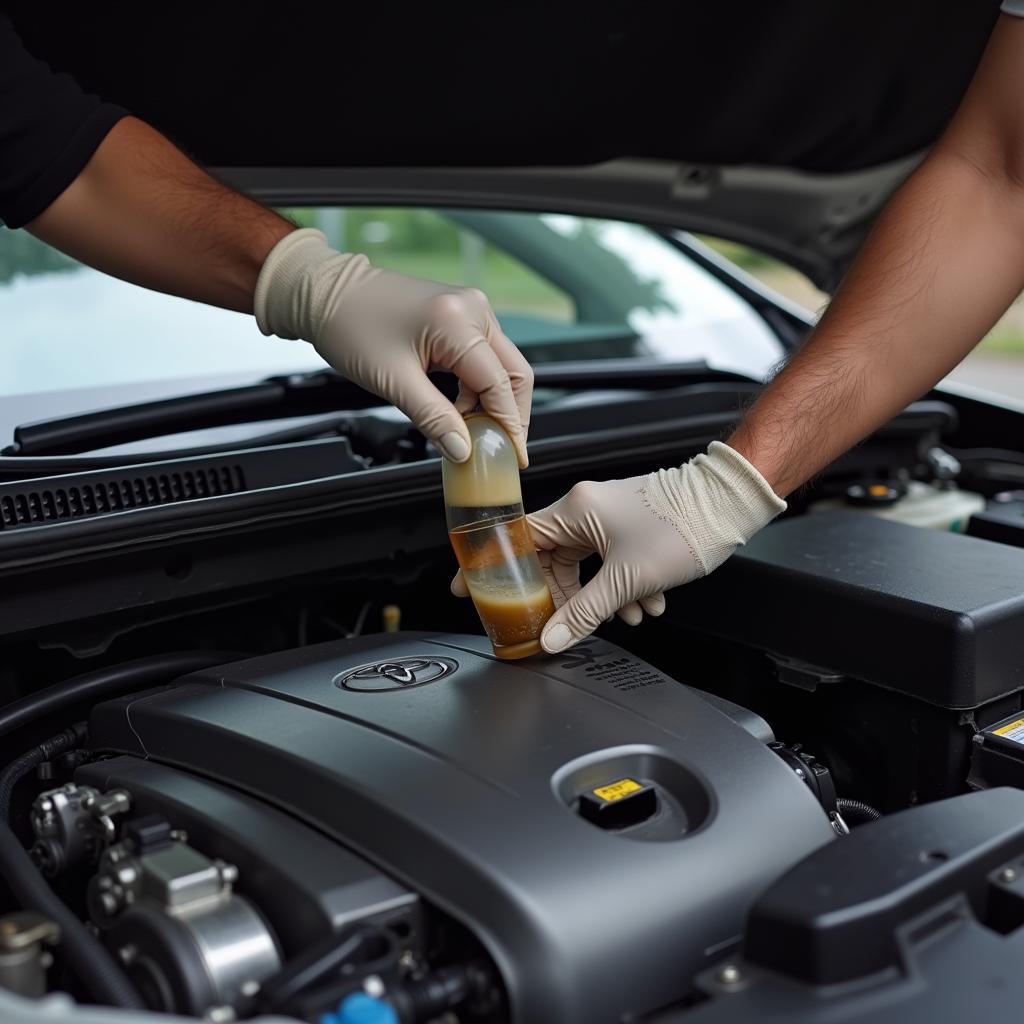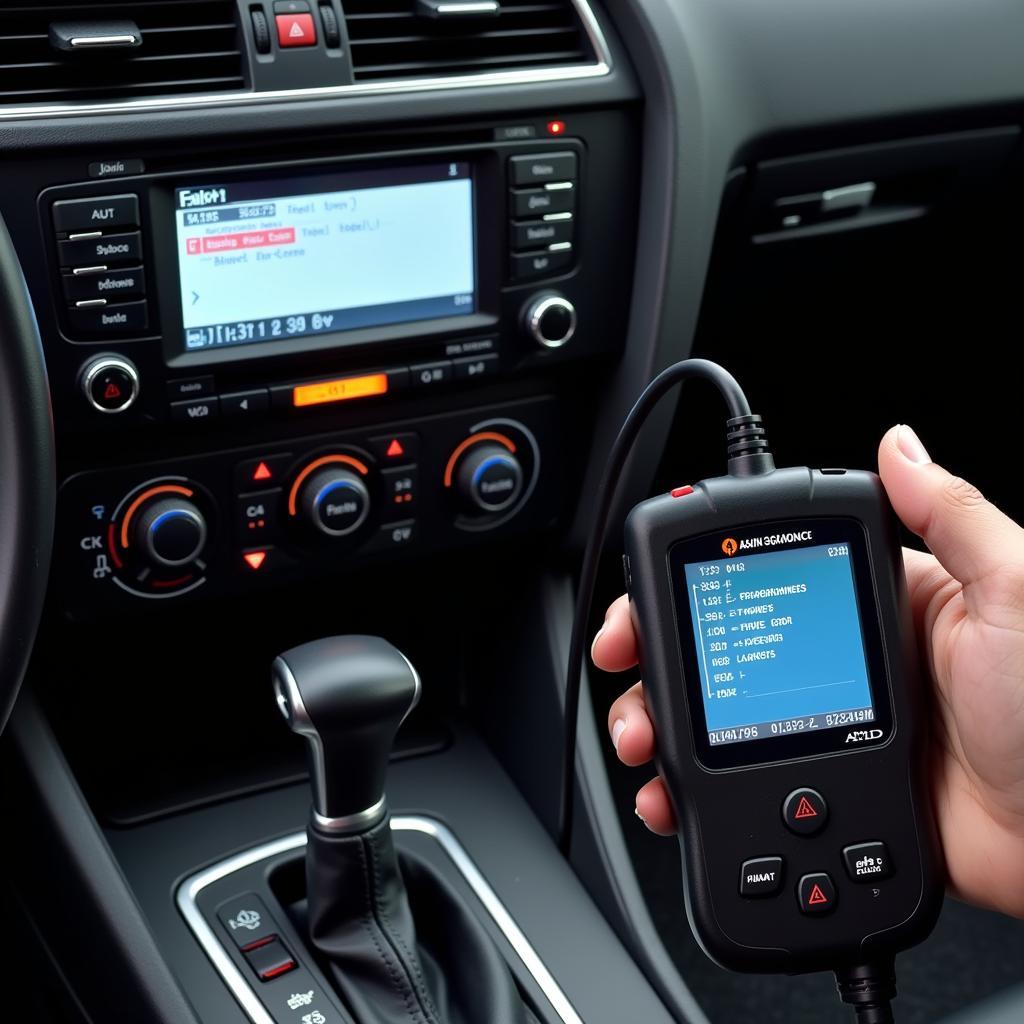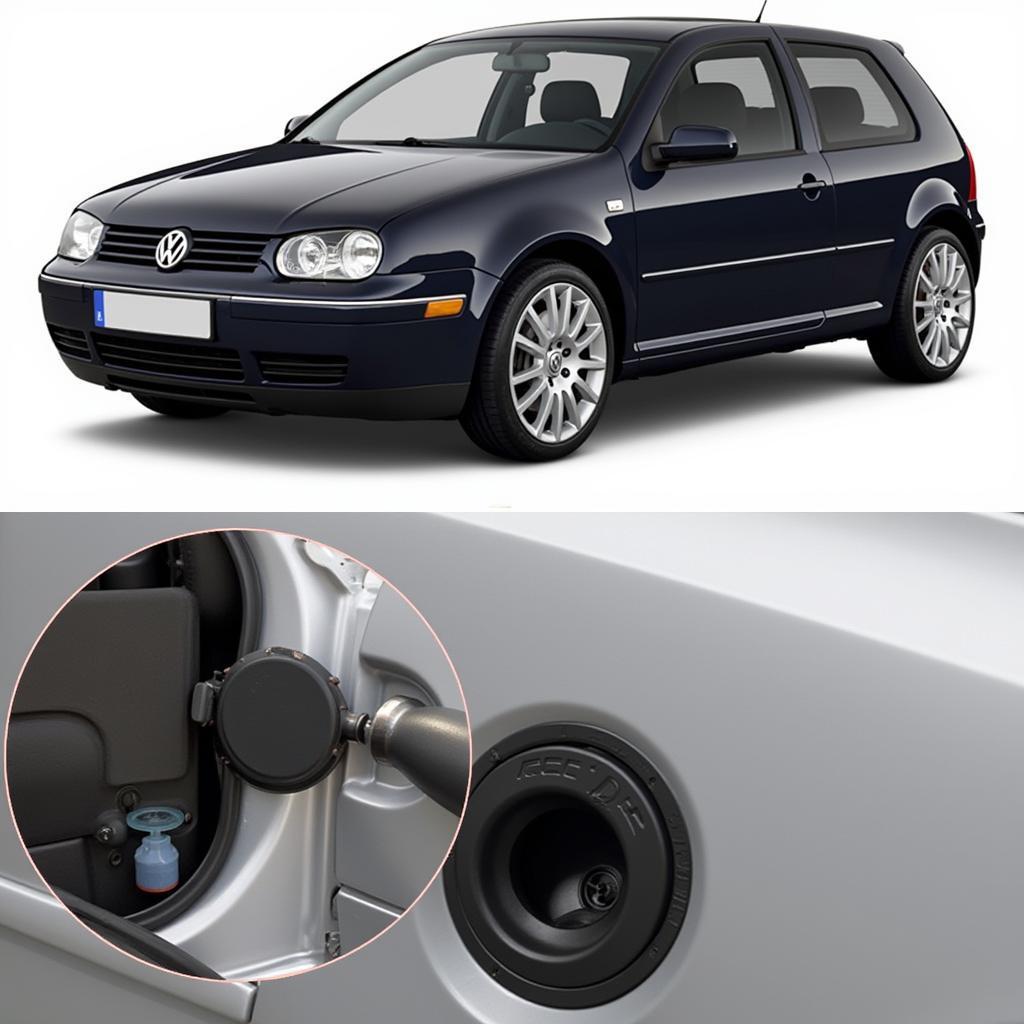A glowing brake warning light on your Toyota Camry’s dashboard can be a real heart-stopper. Is it a minor hiccup or a major malfunction? Before panic sets in, let’s decode those brake warning light symbols and understand what your Camry is trying to tell you.
Common Brake Warning Light Symbols and Their Meanings
Your Toyota Camry utilizes a sophisticated system of sensors and lights to communicate vital information about your vehicle’s health. The brake system is no exception. Here are some of the most common brake warning light symbols and what they indicate:
-
Red Brake Warning Light (Exclamation Mark Inside a Circle): This symbol typically indicates one of two things:
- Parking Brake Engaged: The most common reason for this light is simply that your parking brake is engaged. Disengaging the parking brake should cause the light to turn off.
- Low Brake Fluid Level: A more serious issue, this light could mean your brake fluid level is critically low, potentially indicating a leak in the system.
-
Yellow ABS Warning Light (Letters “ABS” Enclosed in a Circle): This light signals an issue with your Anti-lock Braking System (ABS). It’s important to note that your regular brakes may still function, but the ABS, designed to prevent wheel lock-up during hard braking, may not engage.
-
Brake Pad Wear Indicator Light (Circle with Dotted Lines on Sides): This light appears when your brake pads have worn down to a certain level, indicating it’s time for a replacement.
Troubleshooting Common Brake Warning Light Issues in Your Toyota Camry
While a professional diagnosis is always recommended for any brake system concerns, here are some initial steps you can take to troubleshoot the issue:
- Check Your Parking Brake: The simplest solution is often the most likely. Ensure your parking brake is fully disengaged.
- Inspect Your Brake Fluid Level: If the red brake warning light persists, safely park your Camry and check the brake fluid level in the reservoir. If it’s low, carefully add the correct type of brake fluid specified in your owner’s manual.
- Listen for Unusual Noises: Pay close attention to any grinding, squealing, or scraping sounds when you apply the brakes, which could point to worn brake pads.
- Feel for Changes in Brake Pedal Response: A spongy or soft brake pedal, a pedal that travels close to the floor, or vibrations felt through the pedal are all signs of potential brake problems.
 Checking Brake Fluid in a Toyota Camry
Checking Brake Fluid in a Toyota Camry
When to Seek Professional Help
While some brake warning light issues can be addressed with simple solutions, others require the expertise of a qualified mechanic. Don’t hesitate to seek professional help if:
-
The warning light remains on after checking the parking brake and brake fluid.
-
You notice any fluid leaks around the wheels or under the vehicle.
-
Your brakes feel unusual or unresponsive.
-
The ABS warning light stays on.
“Remember,” advises master mechanic John Peterson, “Ignoring brake warning lights can lead to serious safety risks. Addressing these issues promptly can prevent costly repairs and ensure your safety on the road.”
Preventing Future Brake Warning Light Issues
Proactive maintenance is key to avoiding future brake problems. Here are some preventative measures:
- Schedule regular brake inspections: Adhering to your Toyota Camry’s recommended maintenance schedule for brake inspections is crucial.
- Replace worn brake pads promptly: Don’t ignore the brake pad wear indicator light.
- Use high-quality brake fluid: Always use the recommended brake fluid for your Toyota Camry.
- Avoid riding your brakes: Anticipate stops and coast when possible to minimize wear on your brake pads.
 Toyota Camry Brake Inspection
Toyota Camry Brake Inspection
Conclusion
Understanding your Toyota Camry’s brake warning light symbols is crucial for ensuring your safety and the longevity of your vehicle. While some issues may have simple fixes, others require the expertise of a professional. Remember, never ignore brake warning lights – prompt attention can prevent costly repairs and keep you safe on the road.


